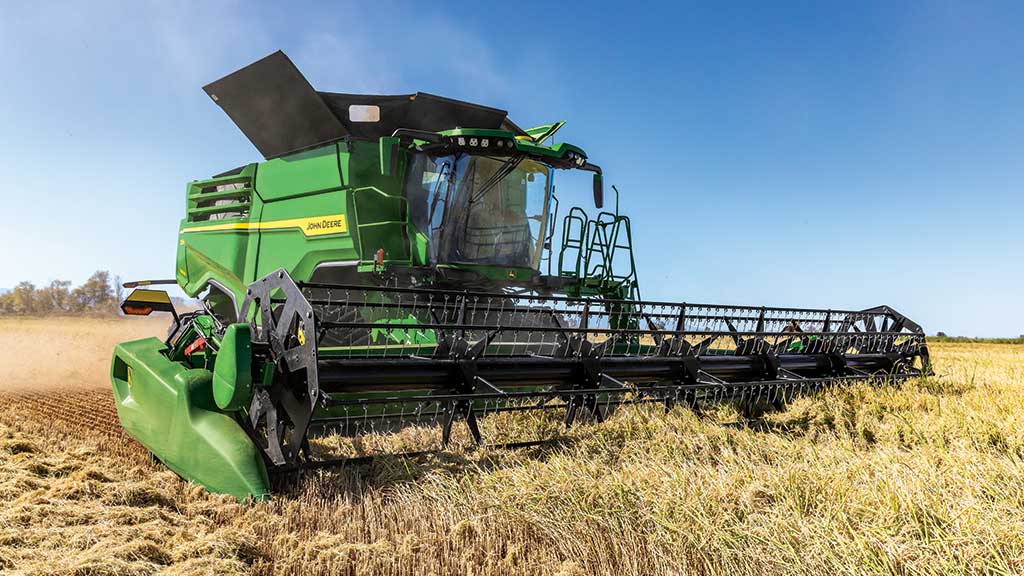for sale that is.
President Donald Trump's tariffs have decimated U.S. farmers' soybean market and there is "no sign of Chinese buying." The fall harvest has started without any orders from China, the world's biggest buyer, according to a new report published on agriculture.com's Successful Farming.
American farmers are reporting record yields for crops this fall but it's unclear who will buy them. The USDA estimates that American farmers are harvesting 4.3 billion bushels, however there is no indication if or when shipments to China will continue. Most years, China buys more than half of U.S. soybean exports — but not this year.
Brazil, however, has had record demand from China from January to August 2025 for Brazilian soybeans. And in the new report, experts "consider the possible consequences if a trade deal is not reached this fall."
"From the 2017/18 to the 2024/25 crop season, Brazil jumped its soybean production from 4.5 billion bushels to 6.3 billion bushels, according to the National Supply Company (Conab) – Brazil’s food supply and statistics agency."
There is speculation that Chinese buyers importing soybeans could be "accelerating shipments to avoid sourcing from the United States."
Read more: 'No sign of Chinese buying': Trump credited for 'devastating' US farmers' soybeans market
fear not. your feckless leader is promising ag help from all that money he's reaping from tariffs .
.
President Donald Trump's tariffs have decimated U.S. farmers' soybean market and there is "no sign of Chinese buying." The fall harvest has started without any orders from China, the world's biggest buyer, according to a new report published on agriculture.com's Successful Farming.
American farmers are reporting record yields for crops this fall but it's unclear who will buy them. The USDA estimates that American farmers are harvesting 4.3 billion bushels, however there is no indication if or when shipments to China will continue. Most years, China buys more than half of U.S. soybean exports — but not this year.
Brazil, however, has had record demand from China from January to August 2025 for Brazilian soybeans. And in the new report, experts "consider the possible consequences if a trade deal is not reached this fall."
"From the 2017/18 to the 2024/25 crop season, Brazil jumped its soybean production from 4.5 billion bushels to 6.3 billion bushels, according to the National Supply Company (Conab) – Brazil’s food supply and statistics agency."
There is speculation that Chinese buyers importing soybeans could be "accelerating shipments to avoid sourcing from the United States."
Read more: 'No sign of Chinese buying': Trump credited for 'devastating' US farmers' soybeans market
fear not. your feckless leader is promising ag help from all that money he's reaping from tariffs





